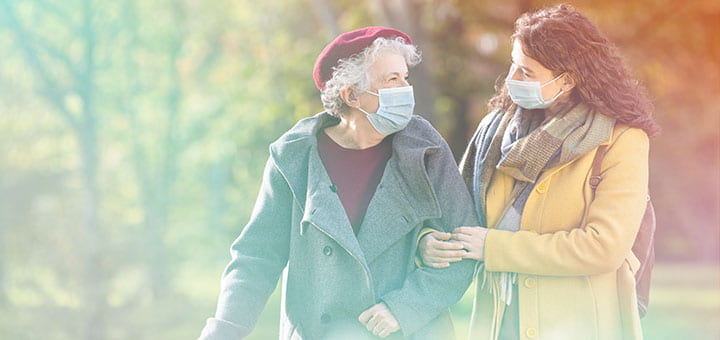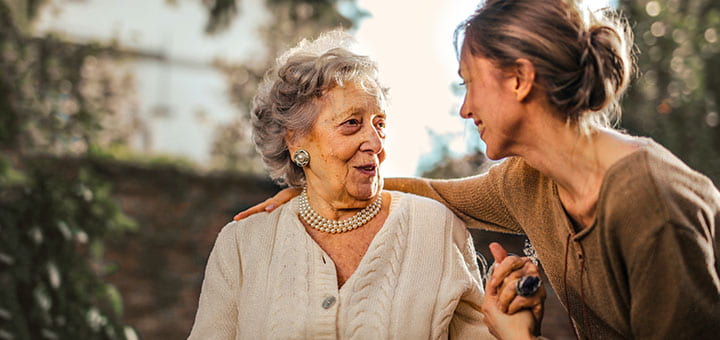The mental health of older Americans has been identified as a priority by key national organizations. Mental health is essential to overall health and well-being and has increasingly become part of the public health mission.
It is estimated that 20% of people aged 55 years or older experience some type of mental health concern. The most common conditions include anxiety, severe cognitive impairment, and mood disorders (such as depression or bipolar disorder).
Depression is the most prevalent mental health problem among older adults. It is associated with distress and suffering. It also can lead to impairments in physical, mental, and social functioning and can affect the course of treatment of other chronic diseases.
Older adults with depression visit the doctor and emergency room more often, use more medication, incur higher outpatient charges, and stay longer in the hospital.
Although the rate of older adults with depressive symptoms tends to increase with age, depression is not a normal part of growing older. Rather, in 80% of cases it is a treatable condition. Unfortunately, depressive disorders are a widely under-recognized condition and often are untreated or undertreated among older adults.
The Geriatric Depression Scale (GDS) is a screening test used to identify symptoms of depression in older adults. The GDS is frequently used in acute, long-term and community settings. Depression should not be diagnosed based on the GDS, but it is often part of a comprehensive geriatric assessment because of its established reliability and validity.
The GDS is available in a long-form that consists of 30 questions, and a more commonly used short-form that has 15 questions. There is also a five-item GDS that often provides similar results to the 15 questions.
The GDS consists of yes/no questions that assess a person’s level of enjoyment, interest, social interactions and more, with a focus on questions that distinguish older adults from younger populations.
A point is given for each answer that indicates depression. On the 15-question form, a score of over five points indicates a need for follow-up evaluation, while a score of over 10 almost always indicates depression.
The development of the GDS was funded by the Federal government and is free to use. According to multiple research studies, both the long and the short form GDS are quite accurate at identifying depression in older people.
*
15-Question GDS
Choose the best answer for how you have felt over the past week:
1. Are you basically satisfied with your life? YES / NO
2. Have you dropped many of your activities and interests? YES / NO
3. Do you feel that your life is empty? YES / NO
4. Do you often get bored? YES / NO
5. Are you in good spirits most of the time? YES / NO
6. Are you afraid that something bad is going to happen to you? YES / NO
7. Do you feel happy most of the time? YES / NO
8. Do you often feel helpless? YES / NO
9. Do you prefer to stay at home, rather than going out and doing new things? YES / NO
10. Do you feel you have more problems with memory than most? YES / NO
11. Do you think it is wonderful to be alive now? YES / NO
12. Do you feel pretty worthless the way you are now? YES / NO
13. Do you feel full of energy? YES / NO
14. Do you feel that your situation is hopeless? YES / NO
15. Do you think that most people are better off than you are? YES / NO
*
Committed to Healthy Aging
We are approaching a milestone in the aging population. By 2034 for the first time in U.S. history adults 65+ are projected to outnumber children under 18. This milestone will affect healthcare in a dramatic way, creating a demand for a new approach to healthy aging and specialized knowledge of the complex needs of older adults.
Wisconsin Caregiver Academy has created a noncredit Certificate Program in Geriatric Healthcare in order to meet this demand. The certificate comprises four core courses and two electives, including “Mental Health” and “Generations and Diversity in an Aging Society.”
The certificate is relevant to nurses, social workers or case managers. Learn how you can play a larger role in patient-centered care for older adults.
*
SOURCE
Center for Disease Control. “The State of Mental Health and Aging in America.”
Verywell Mind. “Overview of the Geriatric Depression Scale (GDS.” Esther Heerema, MSW, January 28, 2020.










